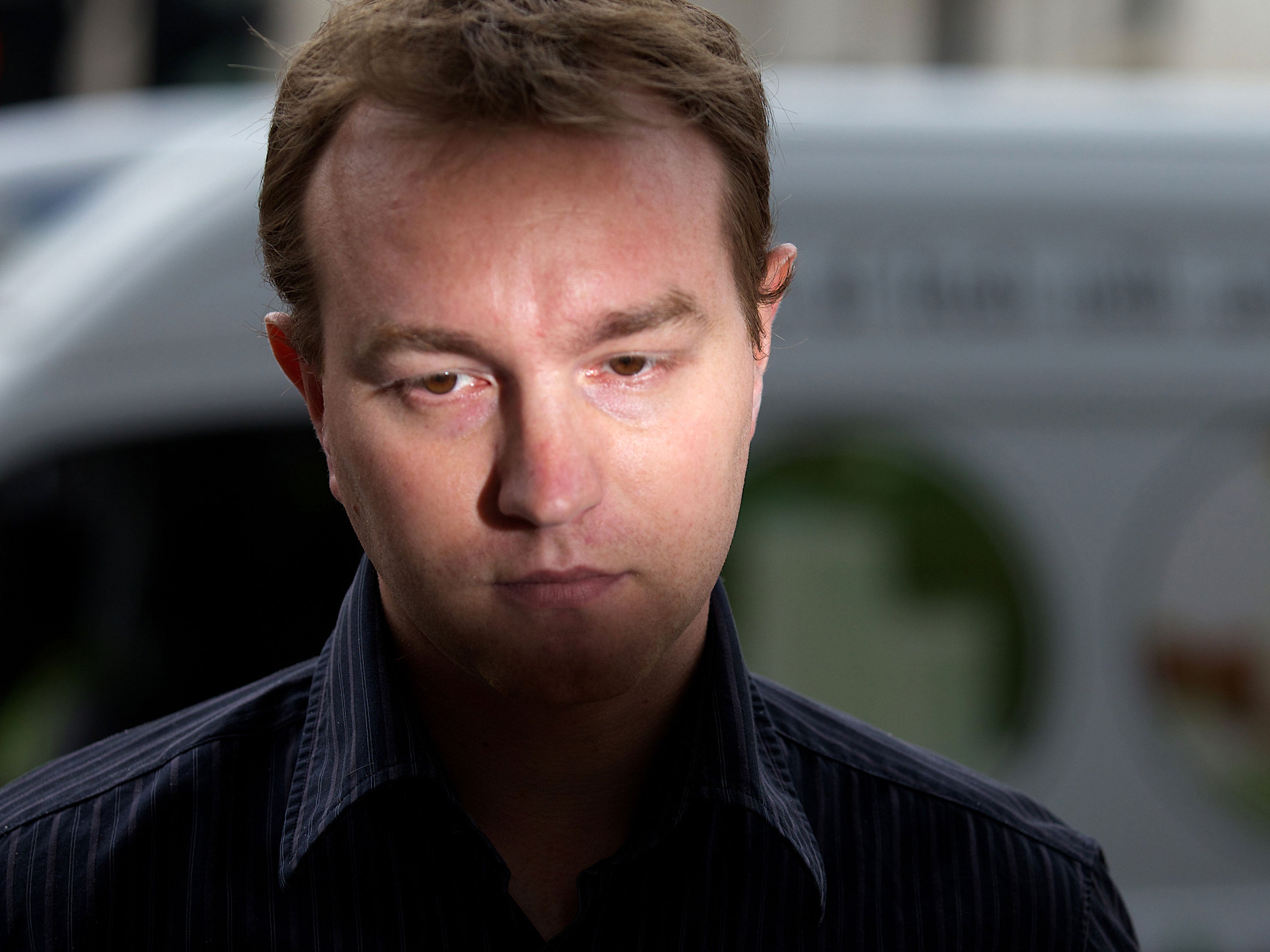Tom Hayes Libor trial: 'Thoroughly dishonest' trader who rigged interbank lending rates was driven by 'greed', court hears
Hayes, who worked at UBS and Citigroup, denies eight counts of conspiracy to defraud

A trader was motivated by greed as he acted as “ringmaster” in a “thoroughly dishonest and manipulative manner” to rig interbank lending rates, a court heard today.
Tom Hayes, 35, is alleged to have done “everything in his power” to manipulate the rates, known as Libor, the prosecution said.
The former UBS and Citigroup trader, of Fleet, Hampshire, denies eight counts of conspiracy to defraud covering a period from 2006 to 2010.
The court heard that Hayes, who is sitting in the well of the court rather than the dock, has been diagnosed with mild Asperger's syndrome.
Mukul Chawla QC, prosecuting, said: “Mr Hayes's desire was to earn and make as much money as he could.
”The more that he earned for his employers, the more they would value his services and, inevitably, the more that they would pay him.“
When Hayes felt that UBS was not paying him enough, he resigned and went to work for Citigroup, a jury at Southwark Crown Court was told. The prosecutor said he was then sacked within a matter of months when his methods were formally reported to senior management.
Jurors heard that Hayes told investigators: ”The point is, you are greedy, you want every little bit of money you can possibly get ... that's how you are judged, that's your performance metric.“
Mr Chawla said: ”It is that greed that led to his dishonesty on an enormous scale.
Mr Chawla said Hayes used his power so that Libor rates were “rigged to his financial advantage and therefore inevitably to the financial disadvantage of those with whom he was trading”.
“He enlisted the help of a large number of people across a large number of different financial organisations to help him achieve this,” Mr Chawla added.
The prosecution said the dishonest rigging was not confined to the banks at which Hayes worked.
“He tried to rig, and in many cases succeeded in rigging, the rates at other banks,” Mr Chawla said, adding that Hayes did so by directly approaching those at banks or through middlemen known as brokers.
The prosecutor said the case may seem complicated but was in fact simple.
“You do not have to be bankers or financial experts to understand what this case is about. The primary focus of this case is whether Mr Hayes, in doing what he was doing, was dishonestly rigging or manipulating Libor.”
Mr Chawla said four of the charges related to Hayes's time with UBS and four charges covered his work with Citigroup.
The prosecutor described Hayes as the “central player” in a scheme to “harm the financial interests of others”.
Hayes is an “extremely intelligent man” who joined the Royal Bank of Scotland's graduate scheme in 2001 after leaving university with a degree in maths with engineering, the prosecutor said.
He later worked for the Royal Bank of Canada before joining UBS in September 2006, where he was employed as a trader in Tokyo, the court heard.
Mr Chawla said Hayes was “dissatisfied” with the amount he was being paid by UBS and left in September 2009 to join Citigroup, where he continued working in Tokyo.
But he was sacked in September 2010 following a complaint about the amount he was manipulating Libor, the prosecutor added.
Hayes returned to the UK and was arrested in December 2012. He spent the next five months being interviewed by the Serious Fraud Office (SFO) over 82 hours, the court heard.
“He admitted his guilt, setting out precisely what he had done with whom,” Mr Chawla said.
Hayes offered to give evidence about a “large number of other people”, the prosecutor told the court.
A recording of one of Hayes's interviews with the SFO was played to the court. In the audio clip, Hayes said he was part of a system where rigging Libor was “commonplace” and he admitted he was a “serial offender”.
Mr Chawla said: “Despite the evidence and admission in interview, Mr Hayes claimed what he was doing in rigging and manipulating Libor was not dishonest.
The prosecutor told the court that ”no one is suggesting“ Hayes ”should “bear the weight of Libor on his shoulders” but his role “stood apart from and above” other people.
Mr Chawla said Libor was “critical to trillions of pounds of investment” in the UK and around the world and Hayes's actions “struck at the very integrity of that system”.
The trial continues.
Subscribe to Independent Premium to bookmark this article
Want to bookmark your favourite articles and stories to read or reference later? Start your Independent Premium subscription today.
